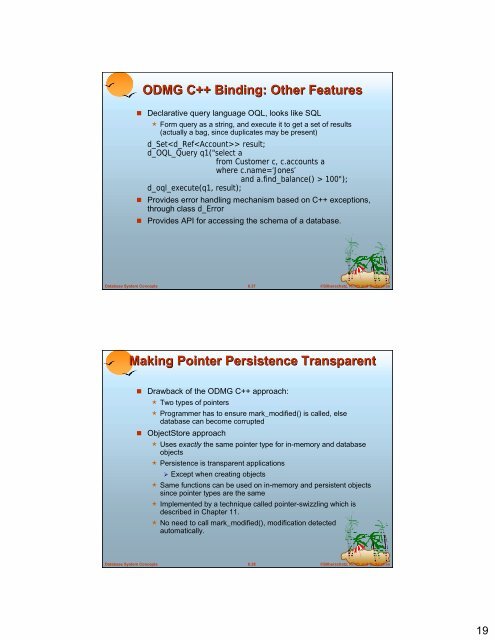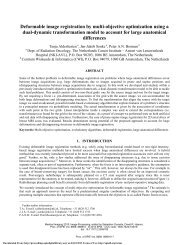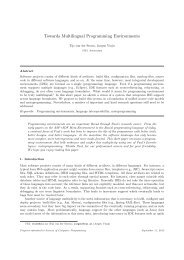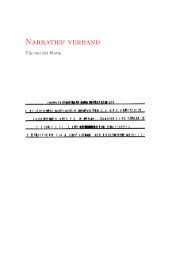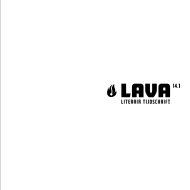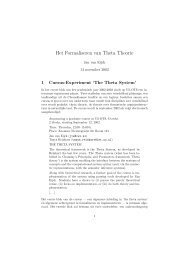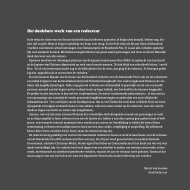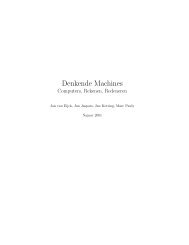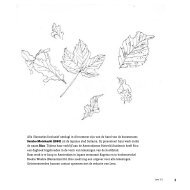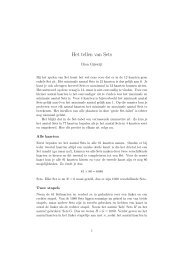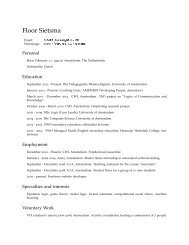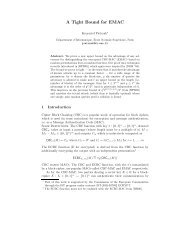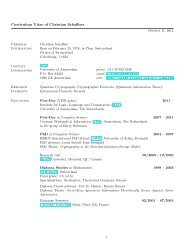Object-Oriented Databases Need for Complex Data Types - CWI
Object-Oriented Databases Need for Complex Data Types - CWI
Object-Oriented Databases Need for Complex Data Types - CWI
Create successful ePaper yourself
Turn your PDF publications into a flip-book with our unique Google optimized e-Paper software.
<strong>Data</strong>base System Concepts<br />
<strong>Data</strong>base System Concepts<br />
ODMG C++ Binding: Other Features<br />
Declarative query language OQL, looks like SQL<br />
Form query as a string, and execute it to get a set of results<br />
(actually a bag, since duplicates may be present)<br />
d_Set result;<br />
d_OQL_Query q1("select a<br />
from Customer c, c.accounts a<br />
where c.name=‘Jones’<br />
and a.find_balance() > 100");<br />
d_oql_execute(q1, result);<br />
Provides error handling mechanism based on C++ exceptions,<br />
through class d_Error<br />
Provides API <strong>for</strong> accessing the schema of a database.<br />
8.37<br />
8.38<br />
©Silberschatz, Korth and Sudarshan<br />
Making Pointer Persistence Transparent<br />
Drawback of the ODMG C++ approach:<br />
Two types of pointers<br />
Programmer has to ensure mark_modified() is called, else<br />
database can become corrupted<br />
<strong>Object</strong>Store approach<br />
Uses exactly the same pointer type <strong>for</strong> in-memory and database<br />
objects<br />
Persistence is transparent applications<br />
Except when creating objects<br />
Same functions can be used on in-memory and persistent objects<br />
since pointer types are the same<br />
Implemented by a technique called pointer-swizzling which is<br />
described in Chapter 11.<br />
No need to call mark_modified(), modification detected<br />
automatically.<br />
©Silberschatz, Korth and Sudarshan<br />
19


